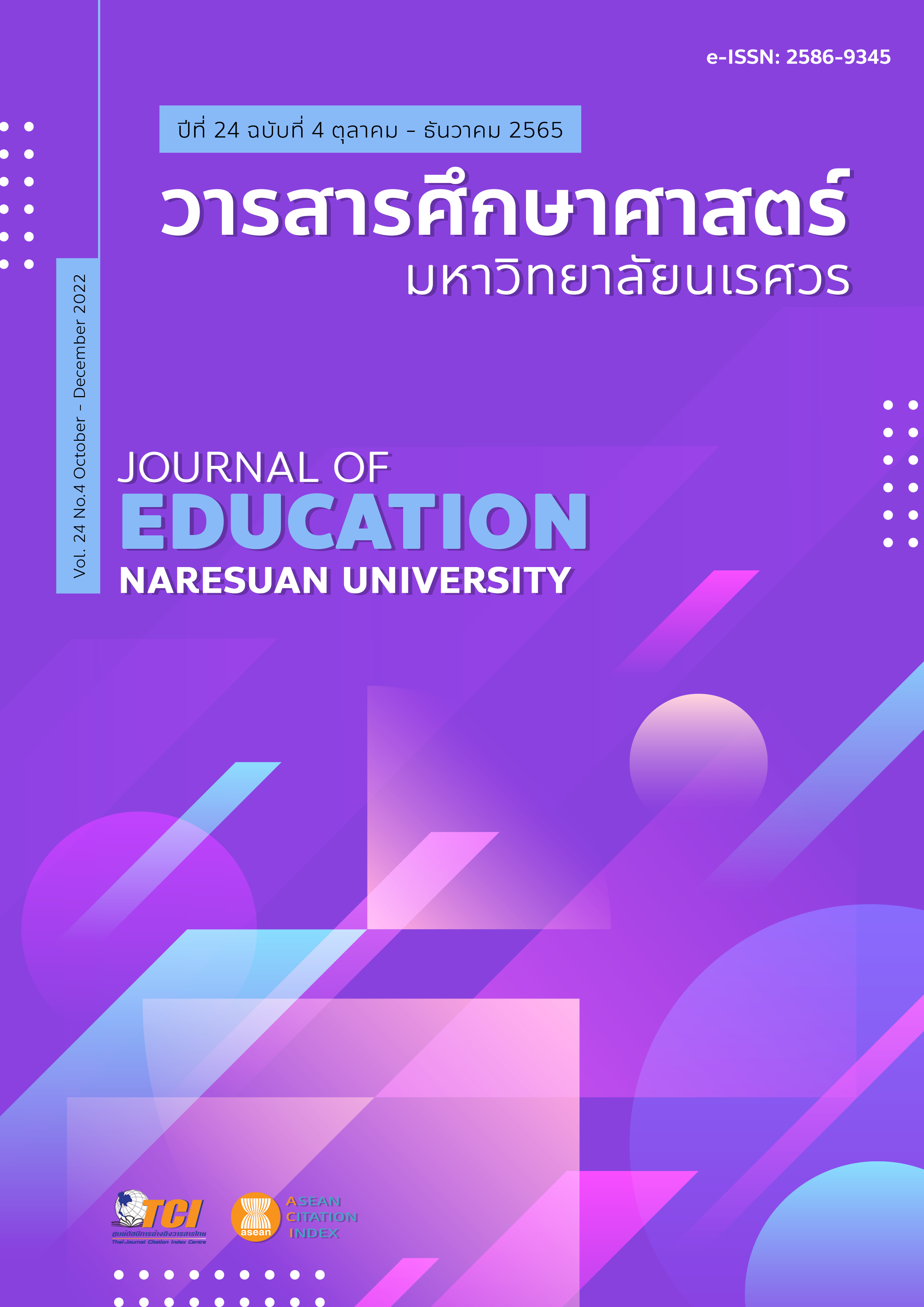THE CAUSES OF CHINGLISH IN ENGLISH WRITING OF THE FIRST YEAR NON-ENGLISH MAJOR STUDENTS AT A PUBLIC UNIVERSITY IN CHINA
Main Article Content
Abstract
The study's objective was to determine what causes first-year students to use Chinglish in their English writing. The research adopted both qualitative and quantitative methods. Moreover, the research sample consisted of 40 first-year students from the Information Electronics Technology Faculty at Jiamusi University in China. The researcher used 1) Writing test, 2) Questionnaire, and 3) Interview as research instruments. Descriptive statistics were utilised to analyse the data. The causes of Chinglish in English writing found from the questionnaire and interview were 1) Language culture, 2) English writing habits, and 3) Teacher’s teaching methods. Based on the three causes, some suggestions were presented for both the learning and teaching aspects. According to the findings, the researcher identified that: 1) Students should learn more about the Western way of thinking to eliminate the impact of differences in language culture, 2) A good learning habit could reduce the use of Chinglish, and 3) English teachers should continue to pay closer attention to their students with greater care.
Article Details

This work is licensed under a Creative Commons Attribution-NonCommercial-NoDerivatives 4.0 International License.
The owner of the article does not copy or violate any of its copyright. If any copyright infringement occurs or prosecution, in any case, the Editorial Board is not involved in all the rights to the owner of the article to be performed.
References
Chen, Y. Y. (2015). Research on the teaching of academic English writing based on corpus. Modern Educational Technology, 12(2), 84-89.
Ellis, R. (1997). The study of second language acquisition. Shanghai: Foreign Language Educational Press.
Fang, C. (2019). Advantages and disadvantages of mobile phone translation software in English learning. Journal of Hunan University of Science and Engineering, 264(9), 112-114.
Gu, H. (2019). A brief analysis of the causes of Chinglish. Journal of Hefei University of Technology, 4, 119-122.
Guo, X. Y. (2017). Review and prospect of college English writing research in China in the past decade. College Foreign Language Teaching Research, 10(1), 75-92.
Li, X. (2014). Development trends and future prospects of English education in China. Science and Technology Information, 12(2), 178-180.
Li, X. H. (2011). A brief analysis of the causes of Chinglish. Journal of Hefei University of Technology, 4, 119-122.
Lin, B. (2015). Cause analysis of Chinglish. Journal of Longyan University, 8(1), 24-29.
Liu, J. (2017). General view on Chinglish. Overseas English, 7, 105-106.
Peng, X. F. (2009). Cognitive analysis of causes of Chinglish and discrimination of typical phenomena. Journal of Southwest University for Nationalities, 4, 197-199.
Rovinelli, R. J., & Hambleton, R. L. (1977). On the use of content specialists in the assessment of criterion-referenced test item validity. Dutch Journal of Educational Research, 2, 49-60.
Selinker, L. (1972). Interlanguage. International Review of Applied Linguistics, 10, 209- 231.
Tong, X. H. (2011). The influence of cultural differences between English and Chinese on college English writing teaching. Journal of Teacher Education, 10(4), 215-216.
Wang, D. (2013). The influence of Chinglish on oral English learning and communication. Sichuan: Chengdu university.
Wang, H. (2016). An analysis of the correlation between English writing proficiency and writing habit. English Square, 67(7), 164-165.
Zheng, Y. (2014). An analysis of the current situation of English education in China and a study of its improvement. Science and Education Guide, 9, 27-32.


